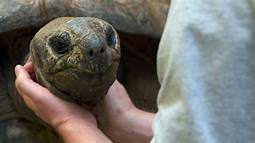Are Sulcata Tortoises Good Pets?
Sulcata tortoises are the third largest species of tortoise in the world, and they can make fascinating pets. They are known for their docile nature, long lifespan, and unique appearance. However, before you decide to bring a sulcata tortoise into your home, it is important to understand the unique needs and challenges that come with owning one of these remarkable creatures.

Temperament and Behavior
Sulcata tortoises are generally docile and easygoing creatures. They are not known to be aggressive or territorial, and they typically enjoy interacting with humans. However, it is important to remember that sulcata tortoises are still wild animals, and they can become stressed or defensive if they feel threatened. It is important to handle your sulcata tortoise gently and with respect, and to avoid making sudden movements that could startle it.
Lifespan and Size
Sulcata tortoises have a long lifespan, with some individuals living for over 100 years. They also grow to be very large, with adults typically weighing between 50 and 150 pounds. This means that sulcata tortoises require a lot of space to roam and explore. If you are considering getting a sulcata tortoise, you need to be prepared to provide it with a large enclosure, both indoors and outdoors.
Diet and Nutrition
Sulcata tortoises are herbivores, and their diet consists mainly of grasses, hay, and leafy greens. They also need to consume a small amount of protein, such as insects or worms. It is important to provide your sulcata tortoise with a variety of foods to ensure that it is getting all the nutrients it needs. You should also make sure to offer your tortoise a source of calcium, such as cuttlebone or calcium powder.
Habitat and Enclosure
As mentioned above, sulcata tortoises need a lot of space to roam and explore. The ideal enclosure for a sulcata tortoise is a large outdoor pen with plenty of room to move around. The pen should be well-fenced to prevent the tortoise from escaping, and it should have a variety of hiding spots and basking areas. In addition to the outdoor pen, sulcata tortoises also need an indoor enclosure for use during bad weather or at night. The indoor enclosure should be large enough for the tortoise to move around comfortably, and it should have a heat source and a source of UVB light.
Health and Veterinary Care
Sulcata tortoises are generally healthy animals, but they are susceptible to a number of health problems, including respiratory infections, shell rot, and metabolic bone disease. It is important to take your sulcata tortoise to the veterinarian for regular checkups to ensure that it is healthy and to catch any potential health problems early.
Declaration: All article resources on this website, unless otherwise specified or labeled, are collected from online resources. If the content on this website infringes on the legitimate rights and interests of the original author, you can contact this website to delete it.






